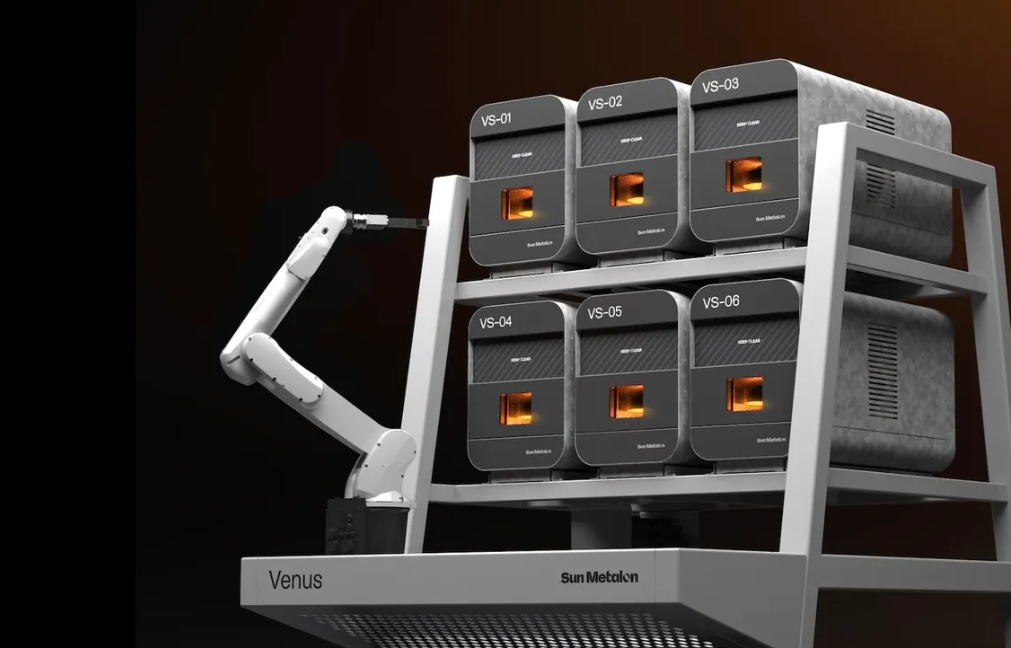

A Chicago-based startup Sun Metalon is taking on one of the world’s biggest climate challenges with a bold solution of turning industrial waste into a valuable resource. The company says its breakthrough technology can removes gunk and grime from discarded metal slivers, enabling their reuse and helping cut emissions in aluminium and steel production that together account for roughly 7 per cent of global carbon emissions, according to the International Energy Agency.

Decarbonising these heavyweights is no small task.
It will require a sweeping transformation of industrial systems rooted in more than a century of tradition, along with costly upgrades to massive steel and aluminium mills. But by tapping into overlooked waste streams, this startup hopes to chip away at emissions one dirty scrap at a time. Sun Metalon is tackling steel decarbonisation in smaller, strategic steps with an oven-sized device designed to recover recyclable metal from waste streams that would otherwise end up in landfills.
“You’ve got a company throwing something away, in some cases paying to throw it away because it’s contaminated with toxic materials. [Sun Metalon is] offering a way to create value from that,” said Nick Yavorsky, senior associate for the climate-aligned industries program at the clean energy nonprofit RMI.
Evolution of the concept
On May 21, the company announced it had secured $9.1 million in Series B funding from four investors, including Japanese steel giant Nippon Steel. In the US most steel and aluminium is produced from recycled metal rather than raw ore a fortunate trend, as recycling generates significantly lower carbon emissions compared to primary production. Expanding the volume of metal that can be recycled is therefore a key strategy for decarbonising the industry.
Also Read: MIT unveils a cost-effective green hydrogen production tech from recycled aluminium and seawater
Sun Metalon CEO and co-founder Kazuhiko Nishioka developed the idea for the technology while working at Nippon Steel and pursuing a PhD at Northwestern University near Chicago, with backing from Nippon. In 2021, he teamed up with two colleagues from Nippon to launch the company, starting with hands-on experiments to clean metal scraps that were previously too contaminated with oil or other residues to be recycled.
“We use our heating process to evaporate fluids, then condense the impurities back into liquid form for collection. The system operates at the boiling point of oil and runs entirely on electricity—making it carbon-free when powered by renewable energy. Sometimes scrap has a negative value, especially for sludges — no one can recycle it, so they have to pay for disposal. We can bring it up to best or second best” in the value chain of recycled metal feedstock. Then the profit can be shared among customers,” explained Nishioka.
The metal pucks can be sold to electric arc furnaces steel mills that produce recycled steel or to other metal recycling facilities. They can also be reused onsite; for instance, an automotive plant could feed metal waste from one stage of production back into the process to create new engine blocks. In 2024, Sun Metalon secured two patents for its innovative heating technology.
The company’s modular units described as compact industrial “ovens” are designed to sit directly on a factory or foundry floor. These units use intense heat to clean contaminated metal waste, transforming it into solid “pucks” or “coins” that can be seamlessly fed back into metal production cycles.
Also Read: AL Circle’s 'World Environment Day' curated reports show the way forward
Image Source: Sun Metalon
Responses








